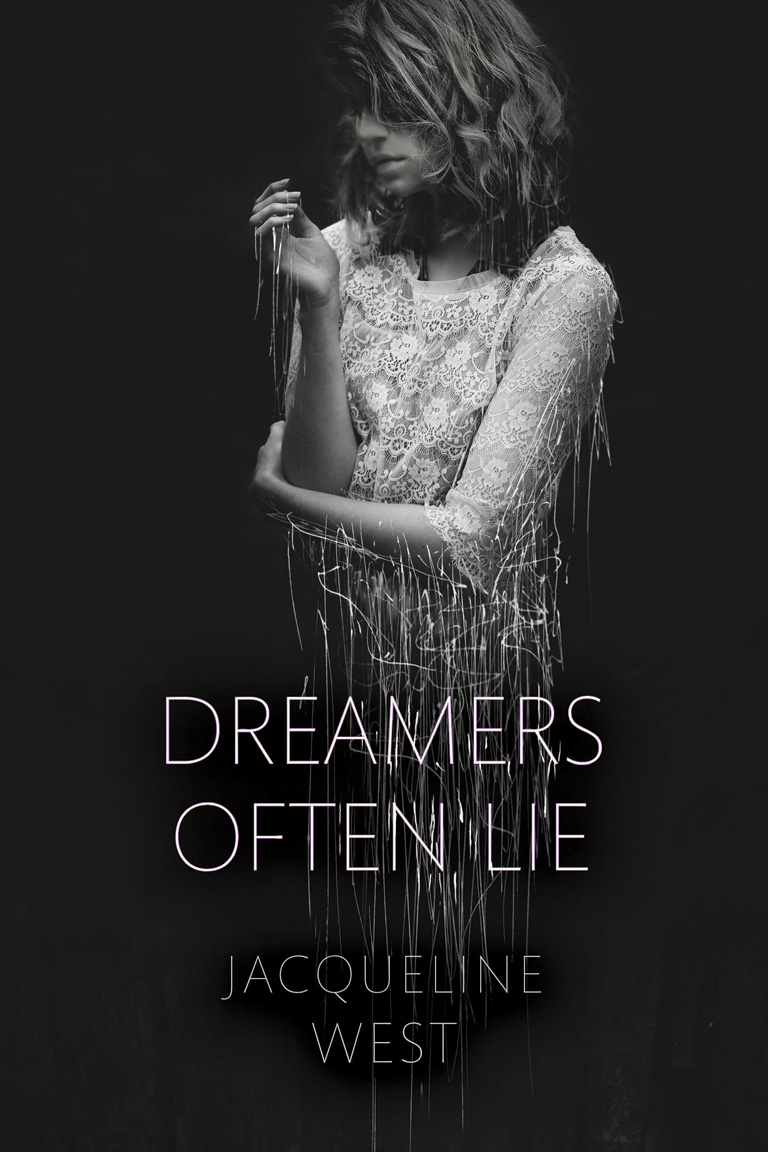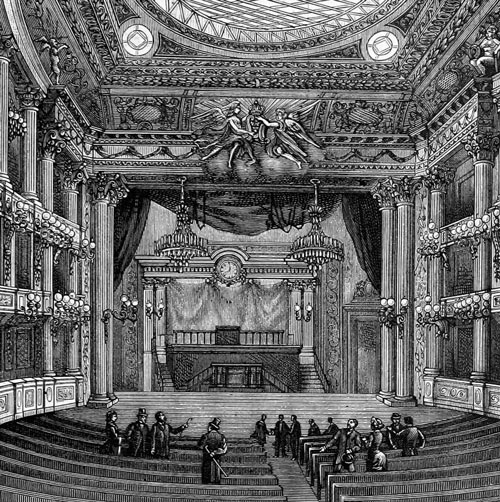Quotes used in DREAMERS OFTEN LIE, full texts of plays, synopses, and more
A MIDSUMMER NIGHT’S DREAM
Full text
Two couples—and one troupe of hapless amateur actors—run off into the woods and find themselves entangled in the tricks of the fairy kingdom.
Important elements: Dreams, love spells, revenge and reconciliation, masks, madness, and magic
ROMEO AND JULIET
Full text
A boy and girl from enemy families fall in love, setting off a series of disasters that consume their friends, families, and themselves.
Important elements: Destiny, dreams, love at first sight, obedience and rebellion, revenge
HAMLET
Full text
An intellectual young prince begins to suspect that his uncle—now his stepfather and the reigning king—had a hand in his father’s sudden death.
Important elements: Insanity, ghosts, father-child relationships, loyalty and disloyalty, perception and reality
MACBETH
Full text
After three witches prophesy that he will be king one day, a nobleman carves an increasingly brutal and bloody path to the throne.
Important elements: Fate, insanity, magic, ambition, illusion
Lots more info about Shakespeare and his era
Quotes and references used in DREAMERS OFTEN LIE
Pg. 2. “She speaks! O, speak again, bright angel!”
-Romeo and Juliet. Romeo speaks, unheard, to Juliet. Act 2, Scene 2.
Pg. 8. “Why should Titania cross her Oberon?”
-A Midsummer Night’s Dream. Oberon to Titania. Act 2, Scene 1.
Pg. 9. “God has given you one face and you make yourself another.”
-Hamlet. Hamlet to Ophelia. Act 3, Scene 1.
Pg. 10. “I think I saw him yesternight.”
- Hamlet. Horatio to Hamlet, referring to Hamlet’s dead father. Act 1, Scene 2.
Pg. 9 – 10. Parallel scene: Hamlet confronts his father’s ghost, Act 1, Scene 4; Hamlet recognizes Yorick’s skull, Act 5, Scene 1.
Pg. 10. “Look where it comes again!”
Hamlet. Marcellus to the other castle guards, regarding the ghost of the king. Act 1, Scene 1.
Pg. 11. “Be as thou wast wont to be. See as thou wast wont to see.”
A Midsummer Night’s Dream. Oberon to Titania, while waking her from a spell. Act 4, Scene 1.
Pg. 24. “No, no, he is dead. Go to thy deathbed. He never will come again… Here’s [there’s] a daisy. I would give you some violets, but they withered all when our [my] father died.”
Hamlet. Ophelia’s mad scene. Act 4, Scene 5.
Pg. 39 – 40. “Over hill, over dale, thorough bush, thorough brier, over park, over pale…”
A Midsummer Night’s Dream. A fairy to Robin Goodfellow, a.k.a. Puck. Act 2, Scene 1.
Pg. 53. “A man, young lady. Such a man as all the world. Why, he’s a man of wax.”
“Verona’s summer hath not such a flower.”
“Nay, he’s a flower, in faith, a very flower.”
Romeo and Juliet. The nurse and Lady Capulet praise Paris to Juliet. Act 1, Scene 3.
Pg. 64. “Something wicked this way comes.”
Macbeth. The witches. Act 4, Scene 1.
Pg. 65 – 67. Parallel scenes: The castle guards in Hamlet see the ghost of the king, Act 1, Scene 1; Hamlet recognizes the ghost of his father, Act 1, Scene 4.
Pg. 67. “The air bites shrewdly. It is very cold.”
Hamlet. Prince Hamlet to the castle guards. Act 1, Scene 4.
Pg. 69. “Who would have thought the old man to have had so much blood in him?”
Macbeth. Lady Macbeth’s sleepwalking scene. Act 5, Scene 1.
Pg. 72. “But thou art not quickly moved to strike.”
“A dog of the house of Montague moves me!”
Romeo and Juliet. Two men of the house of Capulet. Act 1, Scene 1.
Pg. 76. “Speak the speech, I pray you, as I pronounced it to you, trippingly on the tongue…”
Hamlet. Hamlet instructs the traveling players. Act 3, Scene 2.
Pg. 89-90. “O, what a noble mind is here o’erthrown! …And I…most deject and wretched, now see that noble and most sovereign reason, like sweet bells jangled, out of tune and harsh….Woe is me, to have seen what I have seen, see what I see.”
Hamlet. Ophelia mourns that Hamlet seems to have lost his mind. Act 3, Scene 1.
Pg. 92. “Alas, how is it with you that you do bend your eye on vacancy and with the incorporal air do hold discourse?”
Hamlet. Queen Gertrude to Hamlet. Act 3, Scene 4.
Pg. 93. “Was your father dear to you? Or are you like the painting of a sorrow, a face without a heart?”
Hamlet. King Claudius to Laertes. Act 4, Scene 7.
Pg. 102. “And palm to palm is holy palmers kiss.”
Romeo and Juliet. Juliet to Romeo. Act 1, Scene 5.
Pg. 126. “Eye of newt and toe of frog…”
Macbeth. The witches. Act 4, Scene 1.
Pg. 132. “To be, or… [not to be]”
Hamlet. From Hamlet’s soliloquy on life and death—perhaps the most famous line in all of Shakespeare. Act 3, Scene 1.
Pg. 134. “There is a willow grows aslant a brook, that shows his hoar leaves in the glassy stream… There with fantastic garlands did she come of crow-flowers, nettles, daisies, and long purples, that liberal shepherds give a grosser name, but our cold maids do dead men’s fingers call them…”
Hamlet. Gertrude describes Ophelia’s drowning. Act 4, Scene 7.
Pg. 147. “Here lies Juliet, and her beauty makes this vault a feasting presence full of light.”
Romeo and Juliet. Romeo finds Juliet’s body in the tomb. Act 5, Scene 3.
Pg. 148. “Confusion’s cure lives not in these confusions.”
Romeo and Juliet. Friar Laurence to the Capulets. Act 4, Scene 5.
Pg. 148. “In the meantime…hither shall [Romeo] come, and he and I will watch thy waking…”
Romeo and Juliet. Friar Laurence to Juliet. Act 4, Scene 1.
Pg. 148. “What thou seest when thou dost wake, do it for thy true love take.”
A Midsummer Night’s Dream. Oberon casts a spell on Titania. Act 2, Scene 2.
Pg. 151. “What a piece of work [is man]…In form and moving how express and admirable, in action how like an angel…”
Hamlet. Hamlet to Rosencrantz and Guildenstern. Act 2, Scene 2.
Pg. 157. “My care hath been to have her matched… Having now provided a gentleman of noble parentage…stuffed, as they say, with honorable parts, proportioned as one’s thought would wish a man; and then to have a wretched puling fool…”
Romeo and Juliet. Lord Capulet speaks of Juliet. Act 3, Scene 5.
Pg. 183. “I have remembrances of yours that I have longed long to redeliver…”
Hamlet. Ophelia to Hamlet. Act 3, Scene 1.
Pg. 190. “Too much of water hast thou, poor Ophelia…”
Hamlet. Laertes learns of Ophelia’s drowning. Act 4, Scene 7.
Pg. 193. “Knock, knock, knock. Who’s there, i’ th’ name of Beelzebub?”
Macbeth. The castle porter. Act 2, Scene 3.
Pg. 210. “Alas, poor Yorick. I knew him, Horatio.”
Hamlet. Hamlet recognizes the skull of the jester Yorick. Act 5, Scene 1.
Pg. 228 – 229. Parallel scene. Polonius, hiding behind a tapestry, is stabbed by Hamlet. Act 3, Scene 4.
Pg. 232. “They bleed on both sides.”
“What is it you would see? If aught of woe or wonder, cease your search.”
Hamlet. Horatio on Hamlet’s duel with Laertes. Act 5, Scene 2.
Pg. 246. “A touch, a touch, I confess…”
Hamlet. Laertes, during the duel. Act 5, Scene 2
Pg. 248. “I am but mad north-north-west. When the wind is southerly, I know a hawk from a handsaw.”
Hamlet. Hamlet to Rosencrantz and Guildenstern. Act 2, Scene 2.
Pg. 253. “How now? A conduit, girl? What, still in tears? …[But] still thy eyes, which I may call the sea, do ebb and flow with…”
Romeo and Juliet. Lord Capulet to Juliet.
Pg. 262. “And will he not come again? And will he not come again? No, no, he is dead. Go to thy deathbed. He never will come again.”
Hamlet. Ophelia’s mad scene. Act 4, Scene 5.
Pg. 272. “These violent delights have violent ends…”
Romeo and Juliet. Friar Laurence to Romeo. Act 2, Scene 6.
Pg. 283. “I hope all will be well. We must be patient. And yet I cannot choose but weep, to think they should lay him in the cold ground…”
Hamlet. Ophelia’s mad scene. Act 4, Scene 5.
Pg. 284. “Here she [lies], curst and sad. Cupid is a knavish lad, thus to make poor females mad.”
A Midsummer Night’s Dream. Puck speaks of Hermia. Act 3, Scene 2.
Pg. 299. “He’s a lovely gentleman…I think you are happy in this second match…”
Romeo and Juliet. Nurse to Juliet. Act 3, Scene 5.
Pg. 300. “Sleep that knits up the raveled sleeve of care…”
Macbeth. Macbeth to Lady Macbeth. Act 2, Scene 2.
Pg. 319. “Words, words, words…”
Hamlet. Hamlet to Polonius. Act 2, Scene 2.
Pg. 324. “[I] must be cruel onto to be kind.”
Hamlet. Hamlet to Queen Gertrude. Act 3, Scene 4.
Pg. 347. “Whither wilt thou lead me?”
Hamlet. Hamlet to his father’s ghost. Act 1, Scene 5.



